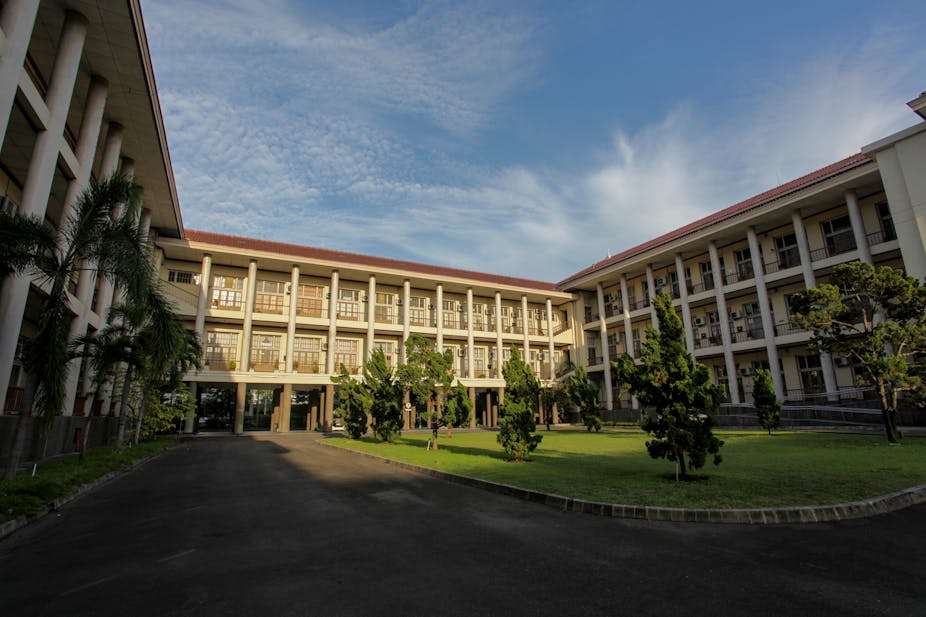States have long been the main actors in international relations. But they are finding it increasingly difficult to deal by themselves with multiple contemporary issues – such as climate change, pandemics, terrorism and economic inequality – due to inefficiency and corruption.
This has led to the emergence of a number of new non-state actors. For example, terror groups such as ISIS have managed to heavily affect other countries’ foreign policies on terrorism. In very different ways, other actors such as K-Pop group BTS have single-handedly influenced how the world perceives South Korea as a nation.
Universities and higher education institutions have also started challenging the role of states as the dominant force in attracting foreign investment – particularly in terms of human talents and technological resources.
The successful management of higher education has helped countries such as the United Kingdom (UK) and China raise their international profiles and draw in not only bright researchers but also billions of dollars for their economy.
The global higher education market itself is enormous and is continuing to grow. In 2017, over 5.3 million students studied outside their home countries. That’s nearly triple the 2 million total in the 2000s.
Read more: Universities and government need to rethink their relationship with each other before it's too late
The ‘soft power’ of higher education
To explain the huge potential of universities, we first need to understand the concept of “soft power”.
Harvard political scientist Joseph Nye defines it as the ability to get what you want through attraction rather than through coercion or payment. According to Nye, the currency of a country’s attractiveness includes culture, political values and foreign policy.
Higher education institutions can become tools of diplomacy by making a country or culture attractive through intellectual excellence.
Based on the Soft Power 30 index, the influence of a country’s higher education is assessed by the following indicators: the number of top global universities, academic papers published and international students in the country.
Countries that rate highly on these indicators end up exerting more influence and global attractiveness.
For instance, UNESCO reports that the UK, Germany and China are among the top ten destinations for international students.
Read more: How universities came to rely on international students
A 2018 study from Indiana University in Bloomington, US, suggests the Chinese government’s higher education policies – including providing opportunities to students in developing countries and establishing partner institutions overseas – has helped attract a huge flow of talent into China.
In the UK, international students have contributed a whopping US$4 billion to the economy over the past ten years through income tax and national insurance payments. This does not even include tuition and post-study work visa fees.
The extra returns from harnessing this market not only subsidise domestic students and research, but also encourage cross-culture collaboration and foster a more peaceful society.
To boost ‘soft power’, invest in global research
Within the past two decades, Southeast Asian scientific giant Singapore has developed its higher education system as a hub of international research collaboration and intensive exchange of innovation and enterprise. Its investment in global research and development has grown tenfold over the last 25 years. Over US$19 billion has been allocated to its 2020 plan.
Through the National Research Foundation, Singapore offers international scientific grants and even research funding to Singaporean companies, universities and foreign scientists – such as through the Industry Alignment Fund.
Read more: A better research funding model for Indonesia: learning from Singapore
As a result, Singapore is the only Asian country to have its universities in the Top 15 of the World University Rankings – a key metric of the Soft Power 30 index.
However, the story is different for its more populous neighbour and the largest economy in the region, Indonesia.
Even though it boasts the largest number of universities in South East Asia, a lack of academic freedom and ineffective research funding policies have hampered Indonesia’s higher education for decades.
Latest UNESCO data show the country allocated only 0.24% of GDP to research funding compared to Singapore’s 2.2%.
This has diminished the world’s interest in engaging academically with Indonesian universities.
In 2017, the number of foreign students in Indonesia amounted to just 0,1% of total tertiary education enrolment, which is the lowest among other Southeast Asian countries such as Singapore (27,2%), Malaysia (8%), Thailand (1,3%) and Vietnam (0,24%).
Read more: Indonesia races against its ASEAN neighbours, but science needs more collaboration
This shows that to achieve global influence or even enter the Soft Power 30 index, it is important for governments to do a better job of investing in their higher education’s ability to attract foreign talent.
Extensive studies show that promoting avenues for global research – through scholarship and grant funding – increases a country’s attractiveness at a much higher rate than other education-related factors that affect soft power.
Unless they make improvements, countries such as Indonesia will be left behind in the race to empower higher education institutions as a force of global diplomacy.
EDITOR’s NOTE: We’ve made a correction to the previous version which misstated the number of foreign students in Indonesia.


